Delta variant a game changer for kids in latest Covid-19 outbreak
Is the Delta variant more infectious? Are playgrounds really dangerous? Should my kids wear a mask? Aussie health experts weigh-in on the truth about kids and the virus.
Coronavirus
Don't miss out on the headlines from Coronavirus. Followed categories will be added to My News.
Melbourne’s current Covid-19 outbreak is becoming increasingly worrying for children in a way the state has never seen before.
Of the 246 active cases in Victoria, 56 are aged under nine and 55 are aged between 10 and 19.
A young child is among 12 people in hospital — and two in ICU — fighting the infection.
A potential case of playground transmission and a “more definitive” incident of transmission between students who walked home together is being investigated by health authorities.
Three playgrounds in Glenroy, Broadmeadows and Melton on Wednesday joined a skate park in Jacana as Tier 2 exposure sites — with people asked to isolate and get tested until they receive a negative result.
Many schools have already played major parts in Victoria’s Covid outbreaks, with Al-Taqwa College at the forefront of transmission in this outbreak and also in the state’s second lockdown last year.
Earlier this week, a Sydney teenager died after being treated in hospital for Covid-19 and pneumococcal meningitis in hospital.
We asked Australian health experts whether the Delta variant is a major cause for concern in kids and whether vaccination is still the best form of protection.
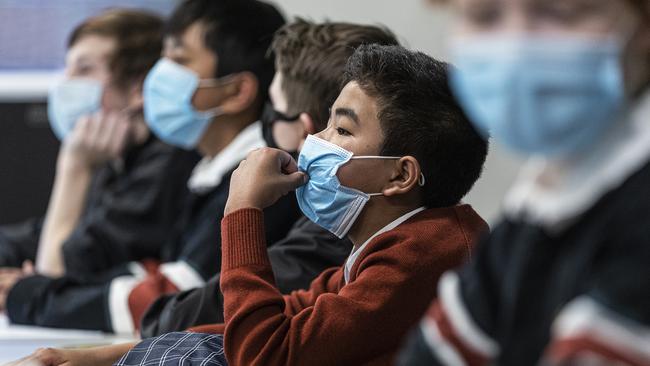
HOW WORRYING IS THE DELTA VARIANT?
Deakin University Epidemiology Chair Professor Catherine Bennett said the Delta variant was a “game changer”, especially when it came kids in this outbreak.
“Absolutely — from how infectious it is, how fast it moves, which is faster than our contact tracing — and now we are bringing kids into the mix, with schools, childcare and playgrounds,” she said.
Prof Bennett said unlike last year when transmission between school-aged children was unlikely, coronavirus was more infectious this outbreak thanks to the Delta variant.
“This is much more infectious this variant, because this virus is more efficient in establishing infection,” she said.
“Kids are likely to be infected and pass it on and that’s the pattern we are seeing.”
DOES DELTA MAKE KIDS SERIOUSLY ILL?
Professor Terry Nolan, Head of Vaccine and Immunisation Research Group at The Doherty Institute, said there was no evidence to suggest Delta was causing more serious illness in kids.
“Delta is not producing more severe disease in kids. It looks to be greater than observed with earlier variants but it’s not translating into higher rates of hospitalisation in Australia,” he said.
Murdoch Children’s Research Institute Associate Professor Margie Danchin told ABC Radio new data out of Canada found that with the new Delta variant, children were 2.7 times more likely to be admitted to hospital — but there wasn’t clear data on increased severity that led to ICU admissions or death.
“Yes we have naive population with children. They are unvaccinated, they haven’t had infection to date … So we are getting more cases, but I don’t think parents need to panic,” Prof Danchin said.
“In terms of severity at the moment, we don’t have clear information that’s the case.”
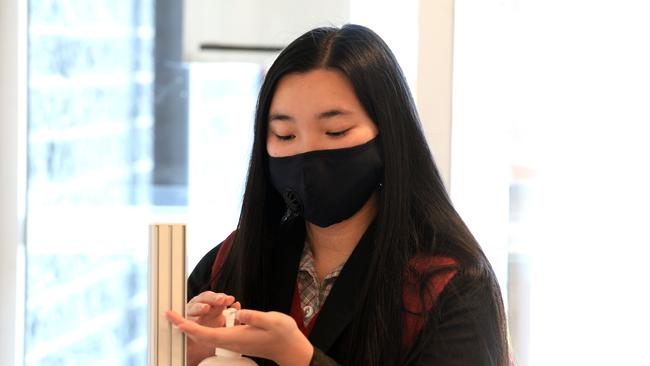
HOW COMMON ARE OUTBREAKS IN SCHOOLS?
Professor Bennett said transmission was more likely in schools than in playgrounds — mainly because classes were conducted indoors over a number of hours, while playgrounds were outdoors in the open-air.
However, the complexity with school outbreaks lay in the web of connections students had in the school community.
“Places we hadn’t worried about before are now potentially good places for this to spread,” she said.
“Schools are seeing kids indoors for long periods, there’s mixing across classes and year levels, there’s inter-school meets and other things. Schools are made up of a set of really complex networks.”
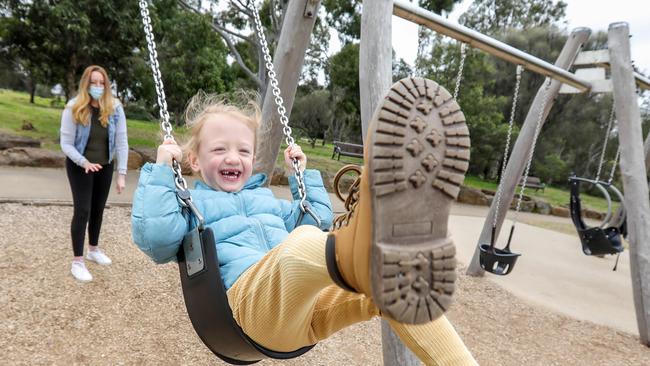
WHAT ABOUT PLAYGROUND TRANSMISSION?
Chief health officer Brett Sutton said his team was investigating the possibility of playground transmission at Tuesday’s press conference.
“We have seen child-to-child transmission throughout this outbreak in schools and in other circumstances. It happens very quickly in households between children,” he said.
“We are investigating a potential transmission in a playground, it’s not definitive and we may not be able to make it definitive, but it looks like there has been transmission in a playground.”
While Prof Danchin appreciated the need for the state government to act quickly to prevent spread and close playgrounds, she said there was room for nuance.
“I think it’s concerning to close playgrounds. I can understand why in terms of transmission,” she told ABC Radio.
“I think we potentially need a staged approach, where it’s regulated how many people go into the playground, for example, you can’t eat or drink in the playground so masks don’t come off, ways that we can hopefully have young people out and play, but safely, and reduce that transmission risk.”
Prof Danchin told ABC Radio that children had become exposed to infection in largely vaccinated overseas populations.
“There’s no doubt Delta is far more infectious and has changed the game, we are all aware of that, but I think we need to be aware we saw this signal in the UK and the US among the unvaccinated populations, big increases in cases in children and young people,” Prof Danchin said.
“We did see this coming and we did expect to see more cases in children.”
Overseas studies were still being carried out on vaccine effectiveness in young children and Prof Danchin said those results weren’t expected to land until next year.
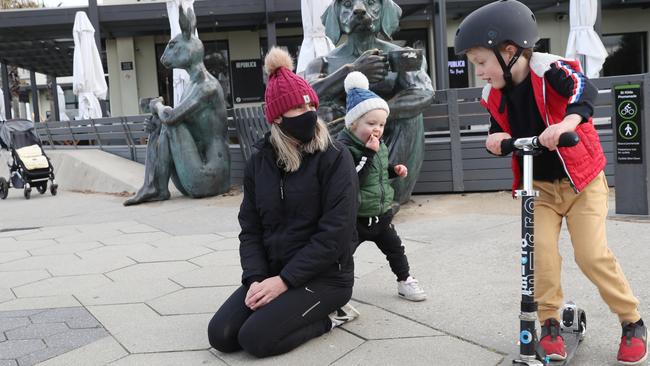
CAN I VACCINATE MY CHILD AGAINST COVID-19 IN AUSTRALIA NOW?
Earlier this month Australian Technical Advisory Group on Immunisation (ATAGI) updated its recommendations to allow 12 to 15-year-olds with medical conditions, who identify as Aboriginal and Torres Strait Islander or live in a remote community to receive Pfizer.
Previously ATAGI clinical guidelines didn’t allow for children under 16 to receive either the Pfizer or AstraZeneca vaccines.
WHAT COUNTRIES VACCINATE CHILDREN AGAINST COVID-19?
Britain’s health regulator approved Moderna vaccine for children aged 12 to 17 this week — weeks after the Pfizer jab was given the green light for the same group.
Students aged 16 and 17 in England have been invited to get their first vaccine dose by August 23, ahead of schools reopening.
Currently only vulnerable kids aged 12 to 15 are being offered the Pfizer jab.
The Medicines and Healthcare products Regulatory Authority (MHRA) said it was up to the Joint Committee on Vaccination and Immunisation (JCVI) to advise the government on whether 12 to 17-year-olds should be given Moderna.
Pfizer/BioNTech is already approved for that age group in the US, Canada and the EU.
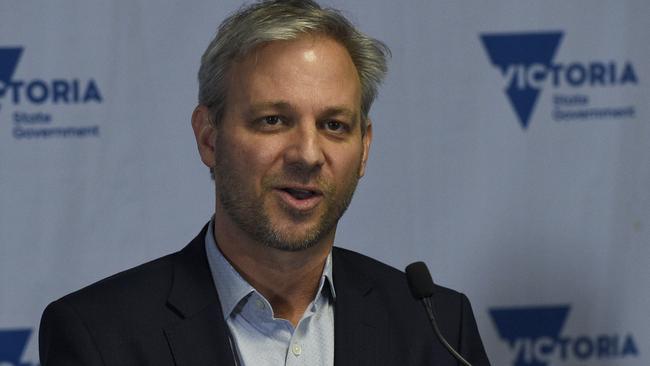
WHY SHOULD WE VACCINATE CHILDREN AGAINST COVID-19?
Associate Professor Hassan Vally, of La Trobe University’s Department of Public Health, said vaccinating children would help with herd immunity later down the track.
“As we get further down our vaccination rollout, vaccinating children is the only way to get to herd immunity,” Assoc Prof Vally said.
“Younger groups may be the less susceptible (to the virus) but they are the ones who move around most in society and have the most social connections.”
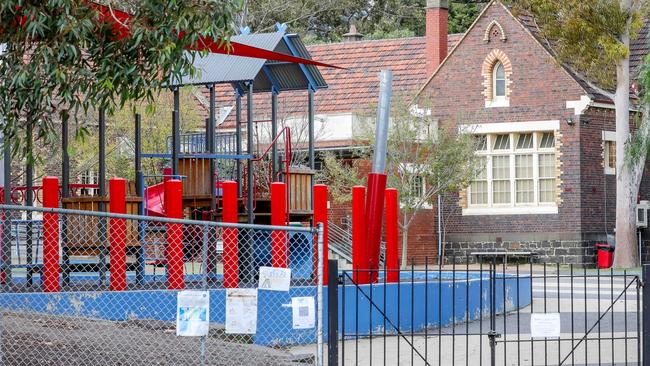
Prof Nolan, of the Doherty Institute, said there were two important reasons to vaccinate children now.
“For their own protection, to keep schools open and make it rarer for them to get serious illness,” he said.
“And two, for contribution to that herd level of protection.”
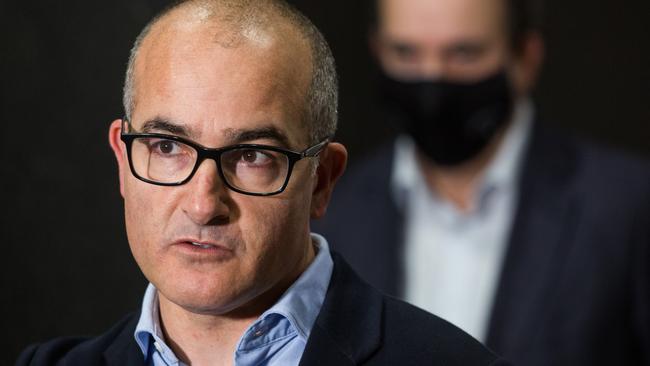
IS THERE A VACCINE THAT IS SAFER FOR CHILDREN THAN OTHERS?
Prof Nolan, of the Doherty Institute, said to his knowledge he wasn’t aware of any direct evidence between the different vaccine efficacies in younger people.
“Nobody has actually studied these outcomes in children,” he said.
MRNA vaccines (Pfizer/BioNTech) have looked at antibody responses in children, and while the US Food and Drug Administration (FDA) had accepted these studies as sufficient evidence to allow vaccination in kids, Prof Nolan didn’t think it was enough.
AstraZeneca doesn’t have any paediatric studies data and Johnson and Johnson is hoping to run paediatric studies in the future.
SHOULD MY KIDS WEAR FACE MASKS?
Secondary school students do have to wear masks indoors and outdoors if learning on site.
Children under the age of 12 aren’t mandated to wear face masks — but should this change to stop the potential spread at schools?
“Parents can certainly do this is the kids are happy to wear them,” Professor Bennett said.
“Getting them used to wearing masks is certainly not a bad thing, but you should never put a mask on a young child because of the choking hazard.”





